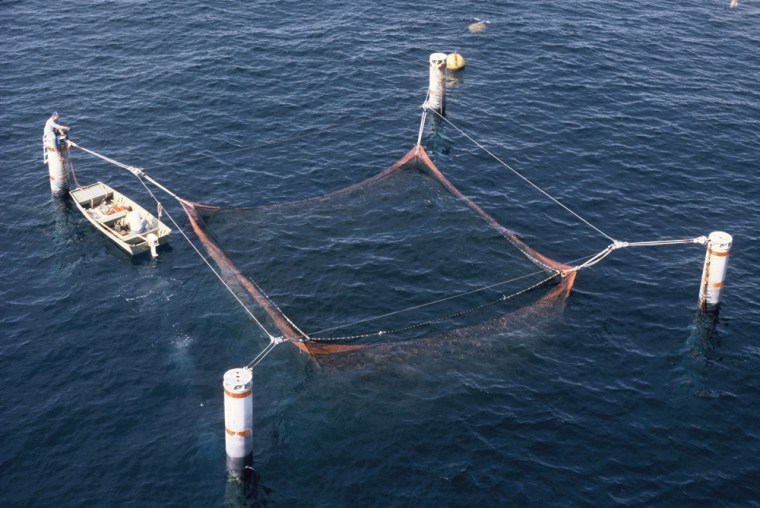The Bush administration proposed a set of rules on Wednesday to regulate future projects off American shores that would use the ocean for alternative energy and aquaculture.
The rules could cover a wide variety of ideas, from turning unused oil platforms into huge fish farms to harnessing alternative energy from wind, currents, waves and algae.
But environmental groups question whether the federal agency in charge of offshore oil and gas drilling should oversee them.
The Minerals Management Service, a branch of the U.S. Department of the Interior, would get the authority to issue leases, easements and rights of way for projects on the Outer Continental Shelf, which is the zone of federal waters extending about 200 miles offshore.
"It is a step forward in trying to diversify our energy portfolio here at home," said David Smith, an MMS spokesman.
David Helvarg, a California oceans advocate and president of the Blue Frontier Campaign, said the United States needs to develop a "realistic energy future that doesn't use fossil fuels" and that could include offshore projects.
"The problem is that the Minerals Management Service has no credibility because it has become a tool of the energy industry," he said.
To remove or keep platforms?
The most controversial aspect for environmentalists may be MMS' attempt to allow offshore platforms to obtain new leases on life through an "alternate use," such as aquaculture.
Some oil companies have already experimented with using the massive platforms to anchor underwater pens for raising fish. The platforms themselves can store feed and house farmers.
Critics say oil companies are looking for ways to avoid paying the steep costs of removing platforms no longer in use. It can cost millions of dollars to decommission a platform.
Under the MMS proposal, an oil platform could avoid being decommissioned if the agency approves a suitable new use. With its extensive network of oil and natural gas platforms, the Gulf of Mexico is considered a prime spot for aquaculture.
"It can only help the United States become more independent of imports," said Granvil D. Treece, an aquaculture specialist at Texas A&M University.
Experts in the Gulf estimate that it would take only 2,000 acres of fish farms to match the amount of fish caught every year in the wilds, Treece said.
Fish waste a concern
But environmentalists say large-scale fish farming would pollute the oceans with fish waste and chemicals. Farmed fish, which often get heavy doses of antibiotics, can also escape into the wild and interfere with native species.
Zach Corrigan, an attorney with the Washington-based consumer group Food & Water Watch, said "industrial fish farming" is a major environmental concern and that MMS, an oil-and-gas dominated agency, should not be "in the business of regulating offshore aquaculture."
Smith, the MMS spokesman, said new leases would be subject to federal environmental laws and that other agencies would be consulted before projects are approved.
Treece said the environmental concerns are overblown.
"There would be very little impact out there," he said, "especially considering how many fish we're talking about."
The Energy Policy Act of 2005 gave MMS the lead role in pursuing new forms of development in offshore waters. The rules were published Wednesday in the Federal Register and are now open for a 60-day public comment period.
